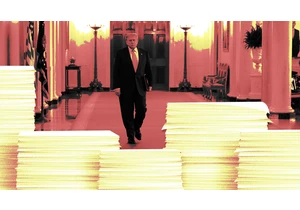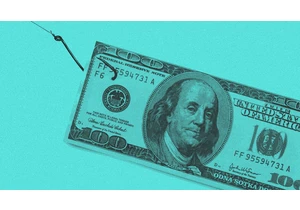What if a company could analyze all your personal information, setting its price based on the data available? The Federal Trade Commission worries this might already be a reality.
The FTC has ordered eight companies—Mastercard, Revionics, Bloomreach, Chase, Task, Pros, Accenture, and McKinsey & Co.—to submit information about their effects pricing schemes have on privacy and competition. In their initial release, the FTC cited location, demographics, credit history, and browsing or shopping history as some of the information possibly being used to establish personalized prices.
Surveillance pricing has long been a black box of information. Uber has for years been accused of the tactic, with rumors floating that the company could charge users based on their phone battery. (The company has denied these allegations.) But as analysts point out, in opening these recent investigations, the FTC aims to conclude not only which companies are using the tactic, but whether it’s used at all. “We know that there’s opportunity and we know that there’s the capacity to both collect the data and target prices,” says Zephyr Teachout, a professor at Fordham Law School. “But it’s pretty much a mystery what’s actually going on.”
What is surveillance pricing?
Price discrimination is nothing new. Movie theaters charge different prices for different age groups, and airlines charge different prices based on the time of purchase. What separates surveillance pricing, then, is the individualized nature of that price personalization. A surveillance pricing system amasses data about each specific consumer, and feeds them a price based on the information it’s learned.
“A company responding to market conditions like a spike in demand causing a price to go up is different from the price of something going up because an individual consumer is able to pay more,” says Lee Hepner, senior legal counsel at the American Economic Liberties Project, a nonprofit advocacy group. “It’s the individualized aspect of this that is particularly nefarious and offensive to working people.”
This is also where AI comes into the pricing picture. Given AI’s ability to rapidly collect and analyze data, some advocates are worried that firms might use the tool to collect sensitive information about consumers before offering them a price.
On the flip side, University of Chicago professor Sanjog Misra argues that AI expedites a process that was already in place. “[AI] doesn’t complicate it, it simplifies it,” Misra says. “We used to just have a sales person do it for us. That wasn’t AI, it was just human intelligence that was personalizing prices. We go to a travel agent and they figure out what’s the best vacation for you and what to charge you.”
Why is the FTC worried about surveillance pricing?
Among researchers, there is significant debate about the validity of surveillance pricing. Indeed, academics have reported that personalized prices could at once offer equity benefits and pose ethical challenges. Misra argues that the benefit may depend upon how you calculate welfare. If a personalized pricing system charges a few rich people $100 more, but saves many poorer people $1, he offers, isn’t that socially valuable?
“It’s a complicated question to think about how you define fairness,” Misra says. “The same treatment for everybody is not fair.”
Misra and his colleague at the University of Chicago, Jean-Pierre Dubé, saw this welfare effect first-hand: They ran an experiment with ZipRecruiter to personalize prices using machine learning. At the end of the study, 67% of consumers paid lower prices.
“It gets even better when there’s competition,” Dubé says. “When you have firms competing with personalized prices, there’s a very strong tendency for markets to degenerate because it allows firms to fight price wars at the individual customer level, which means prices get even lower.”
Teachout, the Fordham Law School professor, has heard this consumer welfare idea of price personalization; it’s the model economists have “been pushing for a long time,” she says. While it’s good in theory, she says, surveillance pricing looks different in practice.
“Reality doesn’t bear that out so far,” Teachout says. “There’s a vision of economics that lives outside of power disparities and information disparities, but that isn’t the world that we live in.”
Given the internal nature of surveillance pricing, it’s difficult to know whether the current mechanisms are in fact providing any consumer benefit. But, with the FTC investigation, we may be inching closer to that knowledge. FTC chair Lina Khan indicated as much in a statement included in the press release, saying that the agency’s inquiry “will shed light on this shadowy ecosystem of pricing middlemen.”
Chcete-li přidat komentář, přihlaste se
Ostatní příspěvky v této skupině

Perched on a dusty high desert plain about 100 miles north of downtown Los Angeles, the Mojave Air and Space Port looks more like a final destination for aerospace experiments than a stepping ston

Before generative AI, if you wanted an inexpensive way to build out lo

Banks are embracing the AI workforce—but some institutions are taking un

For those who’ve had enough of scrolling AI slop, meet Picastro: an In

The Republican Party’s 800-page One Big Beautiful Bill Act is now being debated i

Colombian gangs are using social media to reach and recruit children, the United Nations has warned.
Gangs and rebel groups are enticing children to enlist by posting videos on platforms

